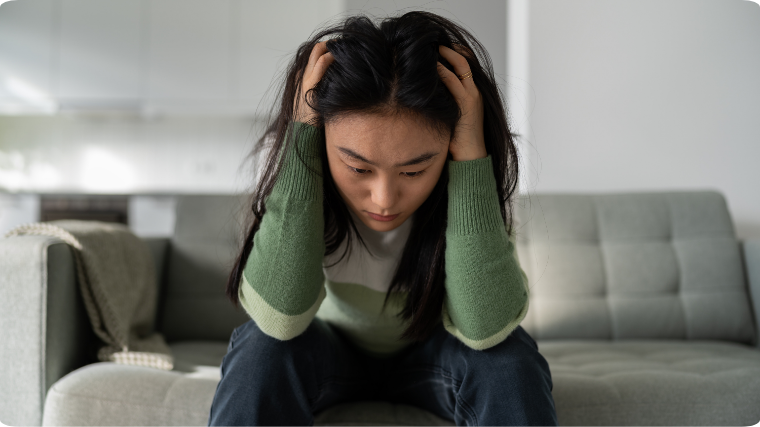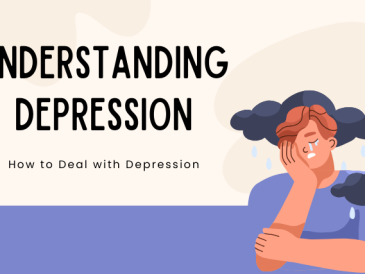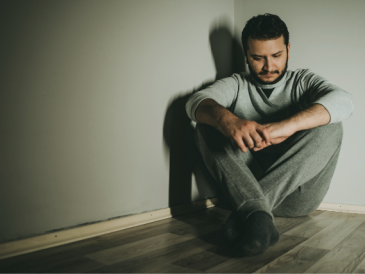You’re lying in bed at 2 PM on a Tuesday, still in yesterday’s clothes. Your phone is filled with unanswered messages from worried friends. You haven’t eaten a real meal in days, and honestly, you don’t care. The person who used to be your entire world is gone, and the emptiness feels like it might swallow you whole. If this sounds familiar, you’re experiencing something millions of people face: depression after a breakup. And here’s what I want you to know right now; what you’re feeling is real, valid, and more common than you might think. You’re not being dramatic, weak, or pathetic. You’re experiencing a genuine loss, and your brain is responding exactly how it’s supposed to.
I’ve spent over five years writing about mental health and relationships, helping thousands of readers navigate their darkest moments. Breakup depression is one of the most painful experiences humans go through, but it’s also something you can heal from with the right support and strategies. In this article, we’ll explore why breakups trigger depression, how to tell if what you’re experiencing goes beyond normal sadness, and most importantly, give you practical tools for how to deal with depression after a breakup. Whether you’re one week or six months post-breakup, you’ll find strategies that can help you start healing.
Why Do Breakups Cause Depression?
Before we dive into solutions, let’s understand why depression and breakups are so closely connected. This isn’t just about feeling sad; there’s real science behind why breakups hit us so hard.
1. Your Brain on Heartbreak
Studies using brain imaging show that romantic rejection activates the same brain regions as physical pain. When you say a breakup “hurts,” you’re not being metaphorical; your brain literally processes it as an injury. Research from Columbia University found that looking at photos of an ex activated pain pathways in the brain similar to touching a hot stove.
2. Loss of Identity
When you’re in a relationship, especially a long-term one, your identity becomes intertwined with your partner’s. You’re not just “you” anymore; you’re “we.” When that ends, you lose not just a person, but part of who you are. This identity crisis can trigger or worsen depression.
3. Disrupted Routines and Future Plans
Breakups don’t just end the present; they destroy the future you’d imagined. All those plans you made together, the life you were building, the dreams you shared; gone. This loss of future possibilities creates a specific type of grief that’s deeply depressing.
4. Chemical Withdrawal
Being in love floods your brain with feel-good chemicals like dopamine, oxytocin, and serotonin. When the relationship ends, you go through literal withdrawal from these chemicals, similar to coming off addictive substances. This chemical crash contributes significantly to post-breakup depression.
5. Attachment Trauma
If you have an anxious attachment style or experienced abandonment in childhood, breakups can trigger deep-seated fears and wounds. The ending of a relationship might feel like confirmation of your worst fears about being unlovable or always being left.
According to a 2023 study in the Journal of Social and Personal Relationships, approximately 40% of people experience clinically significant depressive symptoms following a romantic breakup, with symptoms lasting an average of 6-8 weeks for most people.
Is It Normal Sadness or Depression?
Not every post-breakup mood qualifies as depression. It’s normal to feel sad, cry frequently, and struggle for a few weeks after a relationship ends. But how do you know if you’re depressed after a breakup versus just going through normal grief?
Normal Breakup Sadness Looks Like:
- Crying frequently but still having some good moments
- Feeling sad but able to function in daily life
- Missing your ex but also feeling angry or relieved sometimes
- Gradually feeling slightly better week by week
- Still able to enjoy some activities or time with friends
- Sleeping and eating a bit more or less than usual
- Thinking about your ex often but not exclusively
Depression After a Breakup Looks Like:
- Feeling hopeless that you’ll ever feel better
- Unable to get out of bed or complete basic tasks
- Complete loss of interest in everything you used to enjoy
- Significant changes in sleep (insomnia or sleeping 12+ hours)
- Major appetite changes (not eating or overeating)
- Feeling worthless or that life isn’t worth living
- Difficulty concentrating on anything
- Physical symptoms like headaches, body aches, or digestive issues
- Social isolation beyond initial grief
- Symptoms lasting more than 2-3 weeks without improvement
When to Seek Professional Help:
If you’re experiencing any of these, please reach out to a mental health professional:
- Thoughts of self-harm or suicide
- Complete inability to function in daily life
- Using drugs or alcohol to cope
- Depression lasting more than two months without improvement
- Panic attacks or severe anxiety
- Feeling like you can’t go on
Depression is treatable, and seeking help is a sign of strength, not weakness.
How to Deal With Depression After a Breakup
Now let’s get into the practical strategies. Dealing with depression after a breakup requires a multi-faceted approach. Not every strategy will work for everyone, so try different combinations to find what helps you.
1. Accept Your Feelings Without Judgment
The first step in how to deal with depression after a breakup is radical acceptance of what you’re feeling. Stop telling yourself you “shouldn’t” feel this bad or that you’re “being ridiculous.” Your pain is real and deserves acknowledgement.
Try This: When painful feelings arise, say to yourself, “I’m feeling depressed/sad/angry right now, and that’s okay. This is my healing process.” Don’t fight the feelings; allow them to exist without judgment.
2. Implement No Contact
This is one of the hardest but most important steps. Delete or block your ex on social media. Don’t text, call, or “accidentally” run into them. Every time you have contact, you restart the healing process.
Think of it like trying to heal a wound while repeatedly picking off the scab. It won’t heal if you keep reopening it. Give yourself at least 30 days of complete no contact; longer if possible.
Exception: If you have children together or must interact for logistical reasons, keep communication strictly business-like and minimal.
3. Establish a Daily Routine
When you’re depressed after a breakup, your entire routine has likely collapsed. Rebuilding structure is crucial for recovery. Start small with non-negotiable daily basics:
Morning Routine:
- Set an alarm and actually get up
- Make your bed (it’s a small win that starts your day)
- Shower and get dressed, even if you’re staying home
- Eat something, even if it’s just toast
Throughout the Day:
- Leave your house at least once, even for 10 minutes
- Do one productive thing (laundry, dishes, work task)
- Move your body somehow (walk, stretch, dance)
Evening Routine:
- Eat dinner at a regular time
- Limit social media scrolling
- Do something calming (read, bath, meditation)
- Go to bed at a consistent time
Routine provides structure when everything feels chaotic, and accomplishing small tasks builds self-esteem.
4. Move Your Body
Exercise is one of the most effective natural antidepressants available. Physical activity releases endorphins, reduces stress hormones, and improves sleep; all crucial for dealing with depression after a breakup.
You don’t need to run marathons. Start with:
- A 10-minute walk around your neighborhood
- Dancing to music in your living room
- Gentle yoga or stretching
- Following a workout video online
Aim for 20-30 minutes of movement most days. The key is consistency, not intensity.
5. Connect With Your Support System
Depression makes you want to isolate, but isolation makes depression worse. Force yourself to maintain social connections even when you don’t feel like it.
Actionable steps:
- Text one friend per day, even just to say hi
- Accept invitations even if you don’t feel like going
- Join a support group (online or in-person)
- Call family members regularly
- Be honest about struggling; real friends want to help
You don’t have to pretend everything’s fine, but you also can’t hide away completely. Social connection is healing.
6. Practice Self-Compassion
Talk to yourself like you would a best friend going through the same thing. Would you call your friend pathetic for being sad? Would you tell them they’re stupid for missing their ex? No. You’d be kind, patient, and understanding.
When negative self-talk appears, catch it and reframe it:
- “I’m so stupid for still missing them” becomes “It’s natural to miss someone I loved”
- “I’ll never get over this” becomes “Healing takes time, and I’m doing my best”
- “I’m broken” becomes “I’m going through something really hard right now”
7. Avoid Unhealthy Coping Mechanisms
When you’re in pain, the temptation to numb it is strong. But certain coping strategies make depression after a breakup worse in the long run:
Avoid:
- Excessive alcohol or drug use
- Rebound relationships or hookups to fill the void
- Stalking your ex’s social media
- Revenge fantasies or actions
- Completely neglecting your health and responsibilities
- Isolating yourself completely
Instead, try:
- Talking to friends or therapist
- Journaling your feelings
- Creative expression (art, music, writing)
- Physical activity
- Meditation or mindfulness practices
8. Rediscover Your Individual Identity
Remember that person you were before the relationship? Or the person you wanted to become but put on hold? Now is the time to reconnect with yourself.
Try this exercise: Make a list of:
- Hobbies you gave up during the relationship
- Things you wanted to try but didn’t
- Personal goals you postponed
- Parts of yourself you lost or diminished
Then pick one thing from this list and do it this week. Maybe it’s taking a class, pursuing a hobby, or just spending a Saturday doing exactly what you want without considering anyone else’s preferences.
9. Process Your Emotions Actively
Don’t just let emotions swirl around in your head; get them out. Depression and breakups both benefit from emotional expression.
Effective methods:
- Journal: Write everything you’re thinking and feeling, uncensored
- Talk: Find a trusted friend, therapist, or support group
- Create: Art, music, poetry; any creative outlet works
- Move: Physical activity helps process emotional energy
- Cry: Seriously, crying releases stress hormones and is genuinely healing
10. Challenge Distorted Thinking
Depression distorts your thinking, making everything seem hopeless and awful. Learn to recognize and challenge these cognitive distortions:
Common distortions:
- All-or-nothing thinking: “I’ll never love anyone again” → “I’m heartbroken now, but I’ve healed from pain before”
- Overgeneralization: “All relationships end badly” → “This relationship ended, but I’ve had positive relationships too”
- Catastrophizing: “My life is ruined” → “My life is really hard right now, but it won’t always be”
- Personalization: “It’s all my fault” → “Breakups result from incompatibility, not one person’s failure”
11. Focus on Physical Health
Your body and mind are connected. Taking care of your physical health significantly impacts depression after a breakup.
Prioritize:
- Sleep: Aim for 7-9 hours per night on a consistent schedule
- Nutrition: Eat regular meals with protein, healthy fats, and vegetables
- Hydration: Drink plenty of water throughout the day
- Sunlight: Get outside during daylight hours when possible
- Limit stimulants: Reduce caffeine, especially in afternoons
12. Set Boundaries With Yourself
When you’re depressed after a breakup, you need to protect yourself from activities that worsen depression.
Set limits on:
- Social media use (especially platforms where you might see your ex)
- Sad music or movies that trigger crying jags
- Alcohol consumption
- Late-night rumination (set a “worry curfew”)
- Talking about your ex constantly
Make commitments to:
- Leave your house daily
- Eat at least two meals per day
- Talk to someone supportive regularly
- Do one enjoyable activity per week
13. Consider Professional Support
There’s no shame in needing help. How to deal with depression after a breakup sometimes requires professional support, and that’s completely normal.
According to the American Psychological Association, therapy significantly reduces breakup-related depression symptoms within 8-12 sessions for most people.
Options include:
- Therapy: Cognitive-behavioral therapy (CBT) is particularly effective for depression
- Support groups: Both breakup-specific and general depression groups
- Medication: If depression is severe or persistent, antidepressants might help
- Crisis hotlines: For immediate support during dark moments
Also Read: How to Deal with Depression?
6 Common Mistakes to Avoid
Through my years of helping readers navigate breakups, I’ve noticed patterns in what makes recovery harder:
- Trying to Rush Healing: You can’t force yourself to “get over it” faster. Healing takes the time it takes. Pushing yourself to date or pretend you’re fine before you’re ready causes more harm.
- Staying Friends Too Soon: You need space to heal before friendship is possible. Jumping into friendship immediately keeps you stuck in emotional limbo.
- Seeking Closure: That final conversation that will make everything make sense? It rarely happens. Closure comes from within, not from your ex.
- Comparing Your Healing to Others: Your friend bounced back in two weeks? Good for them. Your journey is your own. Stop comparing.
- Obsessing Over What Went Wrong: Endless analysis of every moment rarely helps. At some point, you need to accept it’s over and focus on moving forward.
- Making Major Life Decisions: Don’t quit your job, move across the country, or make other huge changes while depressed after a breakup. Wait until you’re thinking more clearly.
Signs You’re Healing
Recovery isn’t always obvious, but watch for these signs of depression that you’re making progress:
- You go hours without thinking about your ex
- You can genuinely be happy for others in relationships
- You feel interested in hobbies or activities again
- You’re sleeping and eating normally
- You’ve stopped checking their social media
- You can think about the relationship without intense emotion
- You’re making plans for your future
- You feel hopeful about life again
- You’re taking care of yourself consistently
FAQ: Depression After a Breakup
For most people, acute symptoms improve within 6-12 weeks with active coping strategies. However, everyone’s timeline is different. If depression persists beyond three months without improvement, seek professional help.
Yes. Major life stressors like breakups can trigger clinical depression, especially in people with a history of depression or other risk factors. If symptoms are severe or persistent, professional evaluation is important.
Generally, no. Dating while still grieving your previous relationship is unfair to potential partners and yourself. Focus on healing first. Most experts recommend waiting at least 3-6 months before dating seriously again.
This is completely normal. You’re not missing the reality of the relationship; you’re missing what you hoped it could be, the companionship, or simply the familiar comfort of having someone. Your brain is also experiencing chemical withdrawal.
Yes. The initial weeks often involve shock and denial that temporarily buffer pain. When reality fully sets in around weeks 3-6, depression often intensifies before it improves.
Real Success Story
Jennifer, 29, thought she’d never recover after her five-year relationship ended suddenly. For eight weeks, she could barely function. She called in sick to work repeatedly, stopped seeing friends, and lived on delivery food while binge-watching TV.
At week nine, a friend practically dragged her to therapy. Jennifer started CBT, joined a support group, and committed to daily walks even when she didn’t feel like it. She deleted all social media apps and blocked her ex’s number.
“The first month of actually trying was still awful,” Jennifer admitted. “But by month three, I realized I’d gone an entire day without crying. By month six, I was excited about my life again; maybe for the first time ever, because I was building it just for me.”
Two years later, Jennifer is in a healthier relationship, but more importantly, she’s comfortable being single if needed. “That breakup broke me open, but I rebuilt myself stronger,” she said.
Also Read: 16 Ways to Deal With Anxiety After a Breakup
Conclusion
Depression after a breakup is one of life’s most painful experiences, but it’s also one you can absolutely survive and grow from. What feels unbearable right now will eventually become a chapter in your story; a painful one, but not the whole book.
Remember these key points: allow yourself to grieve without judgment, maintain no contact, rebuild daily routines, move your body, stay connected to others, and be patient with your healing process. If you’re struggling beyond normal grief, reach out for professional help. There’s no shame in needing support through this.
You will feel like yourself again. You will laugh genuinely. You will love again when you’re ready. But first, focus on dealing with depression after a breakup one day at a time. Be gentle with yourself, trust the process, and know that thousands of people have walked this path before you and made it through to the other side. You will too.




